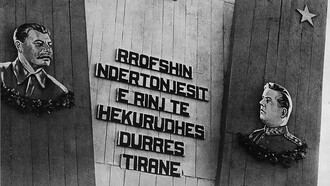Yes, Africans can be found in almost every part of the world. This reality is rooted in centuries of history, shaped by displacement, resilience, and the enduring quest for opportunity. From the bustling streets of New York to the quiet suburbs of Denmark, from the cultural hubs of Spain and France to the far-flung landscapes of Japan and the United Arab Emirates, Africans are present, visible, and influential. I have had the privilege of meeting Africans in my own travels to Spain, Denmark, Japan, Canada, the UAE, the Netherlands, France, and the United States, and each encounter reminded me of the global journey of the African spirit.
The African presence worldwide is not accidental. It has been forged through four major historical forces: slavery, colonization, economic migration, and refugee movements. Together, these factors have created a vast and diverse diaspora whose contributions are shaping societies across continents.
The transatlantic slave trade was the earliest and most devastating of these forces. Millions of Africans were forcibly uprooted from their homelands and transported to the Americas and the Caribbean. Their labor built economies, their culture enriched societies, and their resilience ensured that African identity survived even in the harshest of conditions. Today, African descendants form the backbone of communities in Brazil, the United States, Jamaica, Haiti, and beyond. From the rhythms of reggae and samba to the soulful sounds of jazz and blues, African cultural heritage has permanently shaped global arts and music.
Colonization followed, bringing with it another layer of displacement. European powers carved up Africa, often forcing Africans into unfamiliar roles as soldiers, laborers, or servants across colonial empires. Some Africans found themselves in Europe, serving colonial masters or seeking education. The legacy of this period is evident in the sizeable African communities in France, the UK, Belgium, Portugal, and the Netherlands.
But history alone does not explain the African presence abroad. In modern times, globalization and economic migration have drawn Africans far from their ancestral lands. Young Africans leave home in search of education, career prospects, or the dream of a better life. Many succeed, carving out space in industries from medicine and academia to business and sports. In Canada and the United States, African professionals thrive in technology and healthcare. In the Gulf states such as the UAE, Africans are part of the dynamic labor force driving rapid development. In Japan, small but vibrant African communities contribute to the country’s growing cultural diversity.
Refugee movements add another layer to this global dispersal. Political instability, war, and persecution have pushed countless Africans to seek asylum abroad. From Somali communities in Minnesota to Sudanese refugees in Australia, these populations remind the world that Africa’s challenges are not confined within its borders. They also showcase Africa’s resilience, as these communities rebuild lives and identities far from home.
What is remarkable is not simply where Africans are found, but how they have adapted and contributed. In Spain, I met Africans whose stories reflected the struggle of migration across treacherous seas, yet they carried hope and determination. In Denmark, I encountered African students who spoke fluent Danish and were excelling in universities. In Japan, I was surprised to meet Africans who were introducing Afrobeat rhythms to Tokyo’s nightlife. In Canada, I saw African entrepreneurs opening restaurants and businesses that added flavor and diversity to local communities. In the UAE, I met workers and professionals alike, their presence proof of Africa’s integral role in global labor markets. In the Netherlands and France, African communities are not only thriving but also shaping politics, fashion, and music. And in the United States, African immigrants stand shoulder to shoulder with African Americans, creating a complex but powerful tapestry of identity.
The global African story is also one of immense contributions. Africans in the diaspora are redefining what it means to belong. They are Olympic athletes, Nobel laureates, CEOs, artists, and innovators. They bring with them traditions of resilience, creativity, and community that enrich their adopted countries. At the same time, they remain deeply connected to their roots, often sending remittances home, funding education, and investing in family and local development.
The African diaspora is therefore not just a story of survival or displacement; it is a story of global influence. It is about Africans who refused to let their identities be erased, Africans who crossed oceans and borders and carried their heritage with them. It is about the African student in Copenhagen, the engineer in Toronto, the artist in Paris, and the doctor in Houston. It is about millions of ordinary people building extraordinary bridges between Africa and the world.
The presence of Africans across the globe underscores a universal truth: Africa is not isolated. It is woven into the very fabric of humanity’s shared story. Wherever you go, you will find traces of Africa—in the music that makes us dance, in the food that flavors our meals, in the ideas that inspire progress, and in the faces of people who carry their history with pride.
As I reflect on my own travels and the Africans I have met along the way, I am reminded that the African journey is not confined to a continent. It is a global journey—one of endurance, adaptation, and contribution. It is a reminder that Africa, in all its richness and diversity, truly belongs everywhere.















